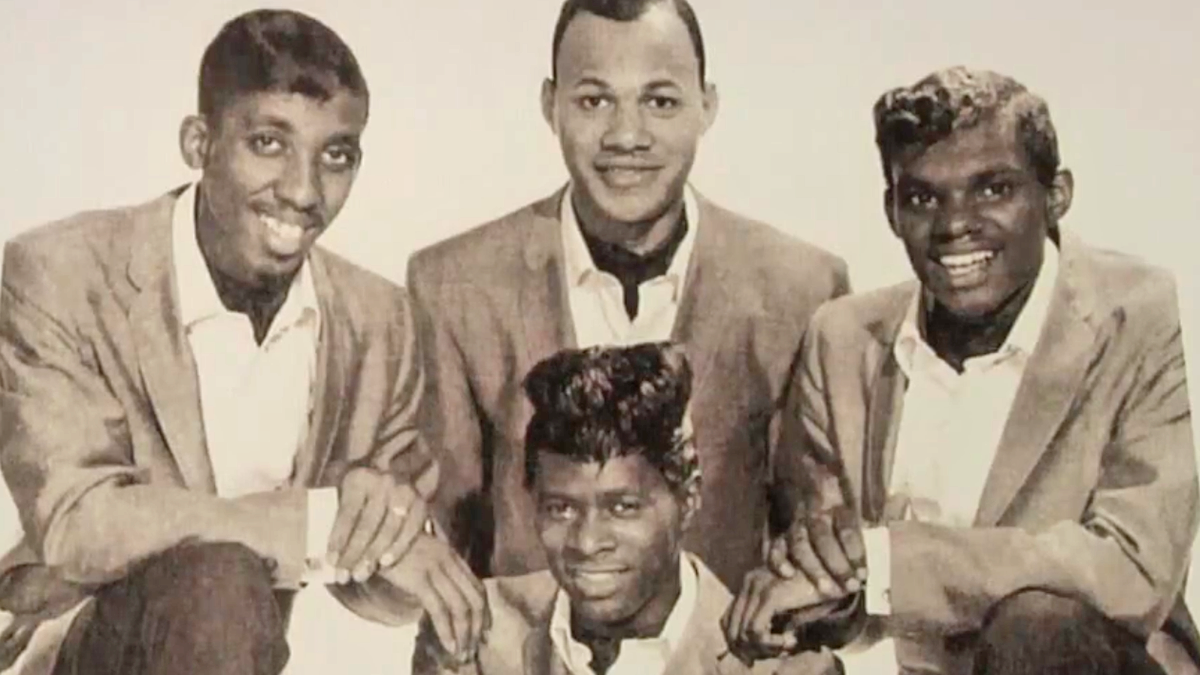Philly label Arctic Records’ legacy is ‘cooler than ice’
Listen
The Volcanos recorded "Storm Warning" in 1965.
The Philadelphia Sound first gained traction in 1965 with “Yes, I’m Ready,” a song written in about 10 minutes in the Francisville neighborhood by a lovesick teenager named Barbara Mason.
I don’t even know how to hold your handJust to make you understand.But I’m ready to learn,Yes, I’m ready to learn,To fall in love with you.
Mason’s girlish voice drifts innocently, on the cusp of adulthood, on a deep pile of strings. The crossover hit put Arctic Records on the map, and ushered in Philly Soul.
The entire output of Arctic Records has just been released as “Cooler Than Ice: Arctic Records and the Rise of Philly Soul,” a six-CD set that also includes six singles as vinyl 45s.
When Arctic Records launched in 1964, it seemed the whole city was ready to learn. It was one of a handful of regional labels that mined local talent — often scouting the city’s many high school talent shows — and nurtured them into hit-makers.
“That was like my training ground,” said Kenny Gamble, then a young songwriter with Arctic who would go on to found the legendary Philadelphia International label. “It was like going to school. Experimenting. Jimmy Bishop used to let me work in the studio, work on the board.”
Jimmy Bishop was both the brain and the brawn behind Arctic. A prominent DJ and program director at WDAS, he freely leveraged his position to push his own roster of talent. He could pull together producers including Weldon McDougal, Johnny Stiles, and Luther Randolph to draw out lush harmonies.
“Everybody was amazed by the Motown sound. Motown was the object of everyone’s attention — trying to get that sound,” said Gamble. “In Philly, they were able to get their own sound. You can’t create the Motown sound in Philly.”
All-star alumni
The box set includes a few rare tracks with Gamble singing with the Romeos, a short-lived affair.
“I liked writing songs better,” said Gamble. “I never liked performing on stage. That didn’t seem like my gift at all. It came hard.”
Arctic Records also included a white soul group called the Temptones, a favorite of the Temptations, which featured a Temple University student named Daryl Hohl. Later he would join up with a guitarist named John Oates and change his name to Daryl Hall.
In the early 1960s, a kid named Stephen Kelly relocated from North Philadelphia to West Philadelphia. He immediately started scouting his peers at John Bartram High School to get a band together: John Hart; Earl Young (who later became the drummer of the Philadelphia International House band MFSB); Eugene Jones (would would later record as Gene Faith); Stanley and Harold Wade (who would later record “Disco Inferno” as the Trammps); and Patti Edwards (who would later become Patti LaBelle).
After LaBelle left in search of bigger waters, the rest of the band settled on The Volcanos. They recorded “Storm Warning” in 1965, showcasing Jones’ lead falsetto. Kelly remembers shopping the single around to the local jocks.
“Hy Lit heard it. Jerry Blavat heard it. They were, like, ‘Who is this group?'” said Kelly. “When they heard that record, it took off. We sold 65,000 copies in Philadelphia alone.”
Sure-fire band, short-lived sensation
The Volcanos erupted, appearing on the marquee of the Uptown Theater on Broad Street and touring extensively. All the while, Kelly never put both feet in the music industry. He always kept a day job. While with the Volcanos, he was a medical technician at Philadelphia General Hospital where he worked the operating room as a respiratory therapist.
“I remember at the old Philadelphia General, performing an operation on a patient, the girls — the other technicians — started laughing,” said Kelly. “The doctor, kind of PO’d, you know? ‘What’s so funny?’ ‘We just saw Steven on Jerry Blavat’s show last night.’
“‘Is that right?” Kelly remembers being asked by the doctor. “‘Yes, sir.'”
“‘All right. Congratulations. Now let’s focus on the patient.'”
The Volcanos lasted only until 1967. There were squabbles among the label’s management and producers, and Kelly says the Volcanos were not getting their due. He remembers being called in to Jimmy Bishop’s office to pick up the royalty checks for “Storm Warning,” and being given $100 apiece.
“That was the first time we walked south on Broad Street, crying in harmony,” said Kelly. “We decided to sit on the record and the contract — not do any more singing, not with Arctic. It was the fault of the manager — Jimmy Bishop.”
After about 60 releases — all of them included in “Cooler Than Ice” — Arctic Records called it quits. Eventually, Bishop more or less disappeared and the label’s assets fell to his partner and distributor, Harold Lipsius. His son, Frank Lipsius, arranged the box set under the Jamie/Guyden label.
WHYY is your source for fact-based, in-depth journalism and information. As a nonprofit organization, we rely on financial support from readers like you. Please give today.





